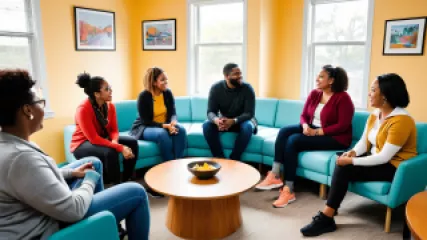How to Start a Peer Counseling Program in Your Community
Welcome to the comprehensive guide on how to start a peer counseling program in your community. Peer counseling programs are invaluable resources that provide support, guidance, and a safe space for individuals facing various challenges. By establishing a peer counseling program, you can empower members of your community to connect with one another, share experiences, and offer support in times of need. This step-by-step guide will walk you through the process of setting up a peer counseling program from start to finish, ensuring that you create a sustainable and impactful initiative.
Step 1: Define the Purpose and Goals
The first step in starting a peer counseling program is to clearly define its purpose and goals. Consider the specific needs of your community and identify the areas where peer counseling can make a significant impact. Are you looking to address mental health concerns, provide support for individuals going through life transitions, or focus on a specific demographic? Clearly articulating your program's purpose and goals will help guide your efforts and ensure that you create a meaningful and effective initiative.
Step 2: Conduct a Needs Assessment
To better understand the needs of your community, it is crucial to conduct a thorough needs assessment. This involves gathering data and insights about the challenges individuals are facing, the existing support systems, and any gaps in services. Engage with community members, conduct surveys or interviews, and collaborate with local organizations to gather valuable information. This needs assessment will provide you with a solid foundation for designing a peer counseling program that addresses the specific needs of your community.
Step 3: Recruit and Train Peer Counselors
The success of a peer counseling program relies heavily on the skills and abilities of the peer counselors. These individuals should be compassionate, empathetic, and possess excellent listening and communication skills. Develop a recruitment strategy to attract potential peer counselors from diverse backgrounds who reflect the community they will be serving. Once recruited, provide comprehensive training that covers active listening, communication techniques, boundaries, and ethical considerations. Empower your peer counselors with the necessary tools to provide effective support to their peers.
Step 4: Establish Guidelines and Protocols
Creating clear guidelines and protocols is essential to ensure that the peer counseling program operates smoothly and maintains a safe environment. Define the scope of the program, confidentiality policies, and procedures for handling crisis situations. Establishing guidelines will provide structure and consistency while safeguarding the well-being of both the peer counselors and the individuals seeking support.
Step 5: Develop a Referral Network
While peer counselors can offer valuable support, it is important to recognize their limitations. Develop a referral network of mental health professionals, therapists, and other relevant service providers who can offer additional assistance when necessary. Collaborate with local organizations and healthcare providers to establish these connections and ensure a holistic approach to supporting individuals in need.
Step 6: Create a Safe Space for Peer Counseling
Provide a physical or virtual space where peer counseling sessions can take place comfortably and confidentially. Whether it's a dedicated room in a community center or an online platform, ensure that privacy and confidentiality are prioritized. Creating a safe space is crucial for individuals to feel comfortable sharing their experiences and seeking support.
Step 7: Promote and Market the Program
Spread the word about your peer counseling program through various marketing channels. Leverage social media platforms, community bulletin boards, local newspapers, and word-of-mouth to raise awareness about the program. Highlight the benefits of peer counseling and emphasize that it is a free and accessible resource for community members. Engage with local influencers, community leaders, and organizations to help promote the program and reach a wider audience.
Step 8: Monitor and Evaluate the Program
Regularly monitor and evaluate the effectiveness of your peer counseling program. Collect feedback from both the individuals seeking support and the peer counselors themselves. Use this feedback to make necessary improvements, address any challenges, and ensure that the program is meeting its goals. Continuously assessing the program's impact and making adjustments will help create a sustainable and responsive initiative.
Step 9: Foster Community Engagement
Encourage community engagement and involvement in the peer counseling program. Organize workshops, events, or support groups that provide opportunities for individuals to connect with one another and share their experiences. By fostering a sense of community, you can create a supportive network that extends beyond the formal peer counseling sessions.
Step 10: Seek Funding and Sustain the Program
To ensure the longevity of your peer counseling program, seek funding from various sources. Explore grants, sponsorships, partnerships with local businesses, or crowdfunding campaigns to secure financial support. Additionally, consider collaborating with other community organizations or integrating the program into existing support services to maximize resources and sustain the initiative in the long term.
Starting a peer counseling program in your community is a meaningful and impactful endeavor. By following these ten steps, you can create a supportive environment where individuals can seek help, find solace, and develop valuable connections. Remember, every community is unique, so adapt these steps to fit the specific needs and resources available to you. Together, we can build stronger communities through peer support and counseling.






